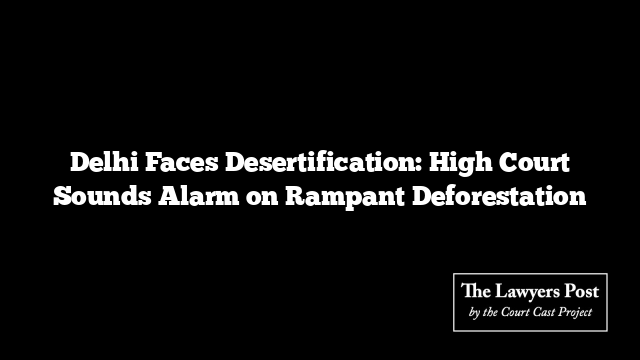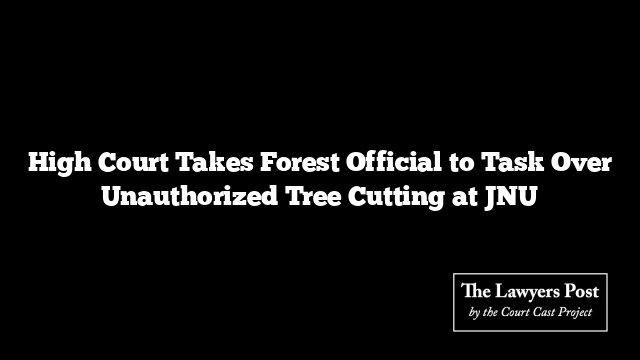The Delhi High Court recently issued a stark warning: continued apathy towards deforestation could transform the bustling capital into a barren desert. This grim projection came as the court noted the city’s alarming temperature spike to 52.3 degrees Celsius on May 30, 2024.
“Judicial notice is taken of the fact that as recent as on 30.05.2024, the official temperature recorded in Delhi was 52.3 degree Celsius. It is not far to see the day when this city may be only a barren desert, in case the present generation continues an apathetic view on deforestation,” remarked Justice Tushar Rao Gedela.
The court’s cautionary note came amidst hearings on a series of petitions addressing the protection and management of Delhi’s forests. Back in April, the court appointed former judge Justice Najmi Waziri to lead an internal departmental committee dedicated to safeguarding the capital’s green cover. However, by May 31, the court learned that essential infrastructure and support for Justice Waziri’s committee were still lacking.
Consequently, the High Court mandated the government to fulfill all requirements for the committee by July 29, when the case will be reviewed again. Additionally, the committee was renamed the “Special Empowered Committee” to underscore its independence and authority.
“Another reason for renaming would be that the name ‘Internal Departmental Committee’ gives a picture as if the Committee and the learned Chairperson is within the Department’s purview, whereas it actually is not. This Court is clear in its mind that the ‘Special Empowered Committee’ is a Committee which has independent reference powers as conferred on it and will discharge its responsibilities accordingly,” the Court clarified.
The High Court also instructed officials from the Ministry of Environment, Forests & Climate Change, Land and Development Office, Central Public Works Department, and Delhi Cantonment Board to actively participate in the committee’s meetings.
Various legal representatives played significant roles in the proceedings, including advocates Aditya N Prasad, Gautam Narayan, and Prabhsahay Kaur as amici curiae. Petitioners and governmental bodies were represented by a host of advocates, reflecting the case’s complexity and the broad spectrum of interests involved.
The stark warning from the Delhi High Court serves as a critical reminder of the urgent need to address environmental degradation before it irrevocably alters the city’s landscape.





